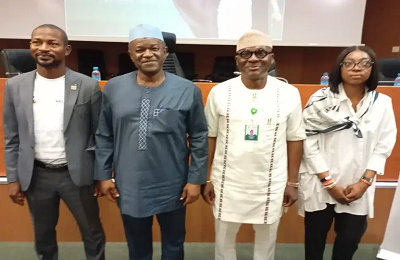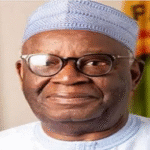Abuja – The National Association of Nigerian Students (NANS) has issued a strict 7-day ultimatum to Federal Capital Territory Minister Nyesom Wike, demanding the immediate Abuja Primary Schools Reopening, citing the prolonged closure’s impact on thousands of children.
A Capital City’s Closed Classrooms
Public primary schools in Abuja have remained shut for over two months. This extended period denies thousands of children access to essential education. The closure affects families across the capital, particularly those with fewer financial resources. NANS has become a leading voice highlighting this issue.
The student body reports sending multiple formal letters to Minister Wike. These communications sought urgent intervention and proposed dialogue sessions. NANS states these appeals received no response. This silence has intensified frustration among students and parents. The situation points to a significant challenge in educational access. It affects the foundational learning of young Nigerians.
This development is critical now as extended school closures can permanently harm children’s learning progress and overall development. It also indicates a communication breakdown between government bodies and student representatives. The continued shutdown impacts the educational start for many children.
Key Demands: The Fight for Abuja Primary Schools Reopening
NANS’s central demand is the Primary Schools Reopening. The group views the current school shutdown as an administrative failure. This failure directly threatens children’s futures. NANS National President, Comrade Olushola Oladoja, shared his strong concerns.
“It is disheartening that for over two months, innocent children have been locked out of classrooms in the capital city of Nigeria. This injustice speaks volumes of the government’s insensitivity to the plight of the common man,” Oladoja stated. He noted that children from less privileged homes remain home. Their education is disrupted. Meanwhile, children of the wealthy attend private schools without interruption. This contrast highlights the equity problems with the school closures.
The ultimatum sets a clear deadline. It stresses the urgency of the situation. The long period without schooling affects academics. It also impacts students’ social and emotional well-being. The situation underscores administrative difficulties within the FCT.
Student Education Rights Under Threat
The continuous closure of Abuja’s primary schools raises serious concerns about Student Education Rights. NANS believes the government’s inaction compromises these fundamental rights. The association condemns what it calls “bureaucratic negligence.” This negligence prolongs the crisis in the education sector.
NANS Escalates Pressure with Mass Action Threat
NANS warns of severe consequences if its demands are not met. The group plans to mobilize students and education advocates nationwide. “If the schools are not reopened within the next seven working days, NANS will mobilize thousands of students and education rights advocates nationwide for a mass action and total shutdown of the Federal Capital Development Authority (FCDA),” Oladoja warned. This strong stance shows NANS’s deep commitment. It aims to compel a resolution to the crisis.
The student group insists that the educational future of Nigerian children cannot be sacrificed. Administrative inaction creates this sacrifice. NANS’s resolve shows its willingness to use public pressure. This pressure is intended to achieve their goals.
Broader Implications for Education and Governance
The extended closure of Abuja’s public primary schools carries significant implications for Nigeria’s educational landscape. It tests the nation’s commitment to providing accessible and fair education for all. The threat of nationwide protests highlights public demand for accountability. It also stresses the need for effective governance. This event could shape how student groups engage with government on crucial youth matters.
Economic impacts are also present. Families relying on public schools may face added costs. Parents might reduce work hours to supervise children. Socially, the gap in educational equity widens. Children from different backgrounds experience different educational outcomes. Politically, it challenges the FCT administration’s capacity. It tests their ability to manage public services. It also assesses their responsiveness to public concerns regarding the Abuja Primary Schools Reopening.
Future attention should focus on whether Minister Wike or the FCT administration responds. Actions taken before the ultimatum expires will be important. The outcome of this standoff will reflect the government’s approach to educational policy. It will also show its methods for stakeholder engagement.
By Abdullah Korede









[…] early leads at Governor Babajide Sanwo-Olu’s polling unit 006 at St. Stevens Nursery and Primary School in […]